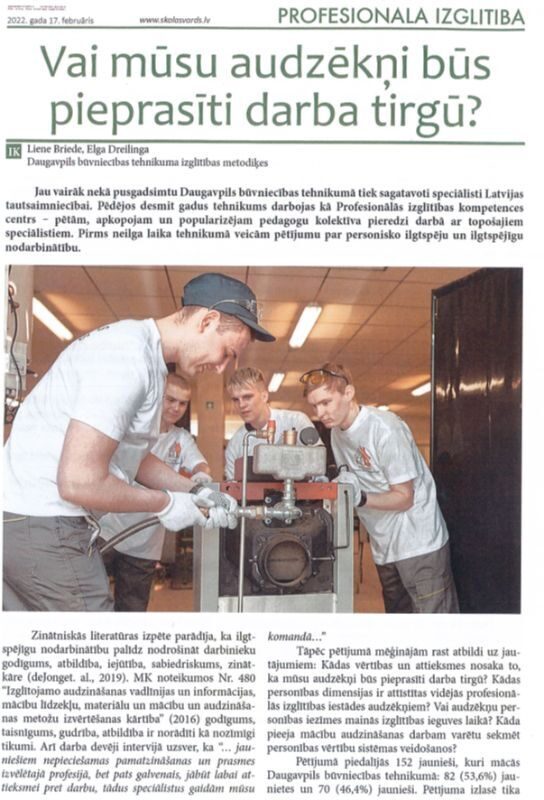Publicēts pētījums par jauniešu attieksmi pret sevi un citiem
Sadarbībā starp Daugavpils Universitātes UNESCO katedru, Rīgas Tehnisko universitāti un Daugavpils būvniecības tehnikumu ir veikts pētījums par attālinātā mācību procesa ietekmi uz audzēkņu vēlmi un prasmi sadarboties, godīgumu attiecībā pret sevi un citiem. Lai to noskaidrotu, tika aptaujāts 51 tehnikuma audzēknis par tādiem jautājumiem kā izlikšanās, savu personīgo mērķu un interešu ignorēšana, sevis vai apkārtējo cilvēku idealizēšana. Apkopojot iegūtās atbildes, tika secināts, ka:
- jaunieši bieži slēpj savu patieso “es”, jo nejūtas droši, neatklāj savu viedokli, “spēlē dzīves teātri”, manipulē, lai iegūtu kādu labumu;
- jauniešiem nav pārliecības par to, vai viņu tuvinieki zina viņu patieso “es”, jo ir atklātības trūkums ģimenē, atsvešinātība vai dažu vecāku vienaldzība par bērna dzīvi;
- parādās arī protests pret sabiedrībā noteiktajām normām, nav vienotības par to, ka vajadzētu ignorēt personiskos mērķus, lai palīdzētu citiem;
- jaunieši atzīst, ka milzīgais informācijas apjoms piesaista viņus viedierīcēm, bet tā vairumā nav noderīga, jo šai informācijai pietrūkst personīgi nozīmīga piesaiste.
Iepriekš minētie secinājumi ļauj izdarīt pieņēmumus par to, ka attālināto mācību laikā audzēkņiem ir pietrūcis kontakta ar vienaudžiem un arī pieaugušajiem, bet gandrīz nepārtrauktā atrašanās interneta vidē ir veicinājusi noslēgšanos sevī , šaubas par to, kas ir patiess un, kas tāds nav. Apzinot problēmu, var meklēt tās risinājumus. Pētījuma rezultātus iespējams izmantot veidojot audzināšanas darba un pedagogu profesionālās pilnveides kursu programmas.
Pētījuma rezultāti ir publicēti starptautiski atzītā žurnālā. Pilnu raksta tekstu var skatīt
The False Self From the Pedagogical Perspective
The article continues a broader theme of long-term action research aimed at reorienting education towards sustainability. The study uses a broader, more holistic research perspective, which takes into account the quality of the current relationship between nature and humanity, which is related to the formation of relations in the Anthropocene age and their consequences. The effects of the era put the pressure on the development of individualsí self-processes, promoting unsustainability in education and other areas, and posing serious challenges to the use of the social communication and technology intensive environment.
Teachers’ perspectives on the education process: Identifying challenges and promoting sustainable solutions
The responsibilities of a teacher are diverse and intricate. Societal shifts, political developments, and rapid technological progress have added further layers of complexity to teachers’ daily tasks. The current research endeavors to analyze how teachers, with varying levels of experience and backgrounds, adapt to these changes in education and perceive opportunities for further development. The aim of the article is to study Latvian teachers’ perspectives on education in Latvia and identify areas for improvement. To reach the aim, focus group discussion was conducted involving six teachers from diverse backgrounds.
Through content analysis, the study identified the primary challenges facing the current education process in Latvia: 1) prolonged, ineffective educational reforms; 2) challenges in rural education; 3) inappropriate teacher training; 4) the need for adaptive teaching methods; 5) the importance of cooperation among teachers and with parents. Addressing these areas could lead to significant improvements in the Latvian education system. The analysis sheds light on several issues within education, including the dynamics of teacher–pupil roles, the quality of educational outcomes, and pupil attitudes.
[PDF] no sciendo.com
A More Sustainable Approach to Evaluating Teacher’s Work
The evaluation of teacher's work has traditionally been a cornerstone of educational systems worldwide, driven by the need to maintain educational standards and ensure teacher accountability. Recognizing the limitations of conventional evaluation practices, a growing movement advocates for a more sustainable and inclusive approach that values the complex nature of teaching. The aim of the research is to analyse ways for incorporating a more sustainable framework in the assessment of teacher’s daily work. The data of 73 observed lessons protocols allow concluding that the recorded statistical data provide only a general overview of classroom practices. Qualitative data serve as a valuable tool for gaining in-depth insights into the context of the classroom problems and the direction toward possible solutions. The main findings of the study: prioritizing student learning and promoting their sustainable development, with an emphasis on independent learning and developing meta-cognitive skills are significant factors of our proposed approach to teacher’s work evaluation, as well as taking into consideration teachers’ beliefs, experience and attitudes in line with the observers’ subjectivity.
[PDF] no sciendo.com

